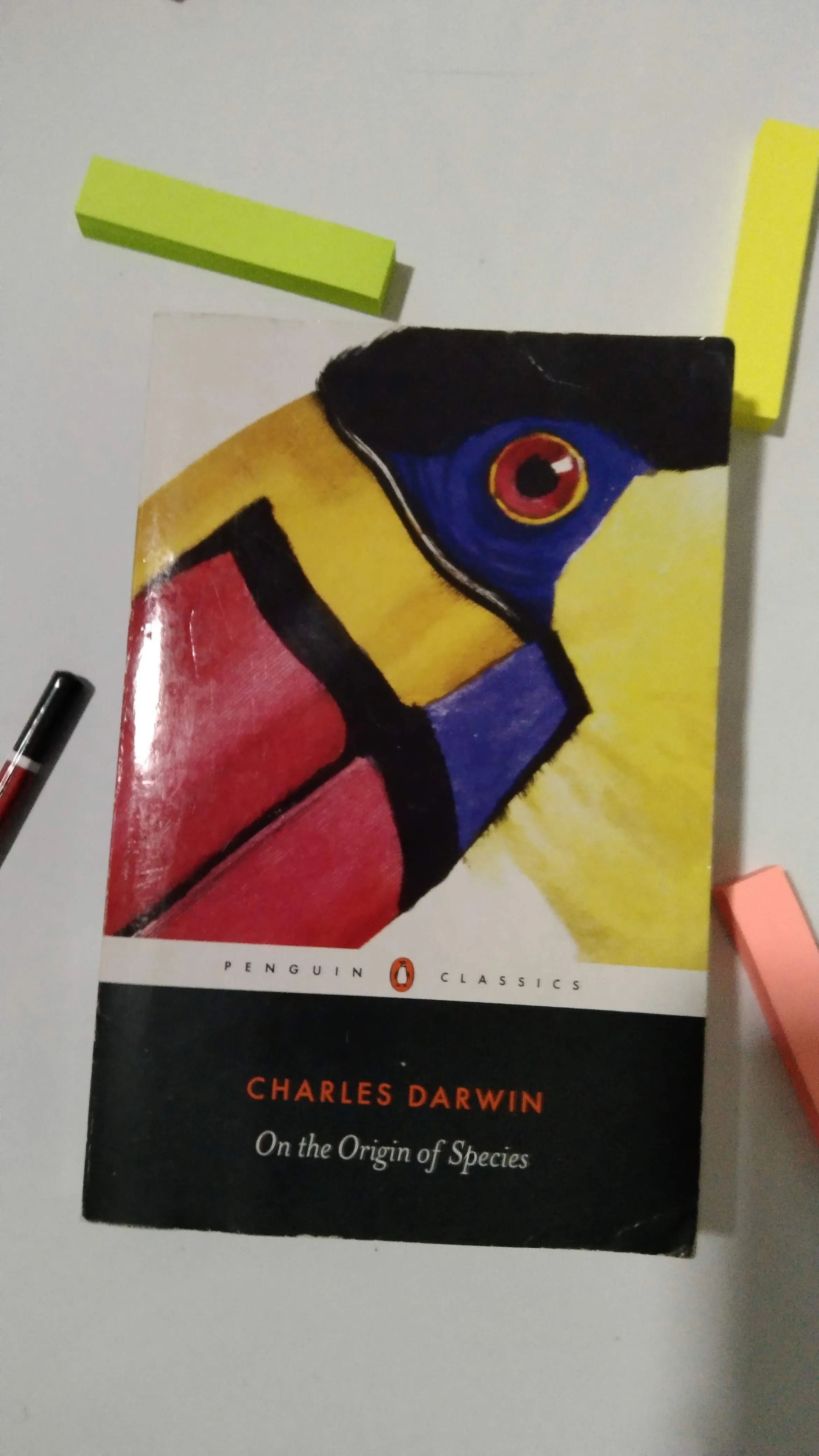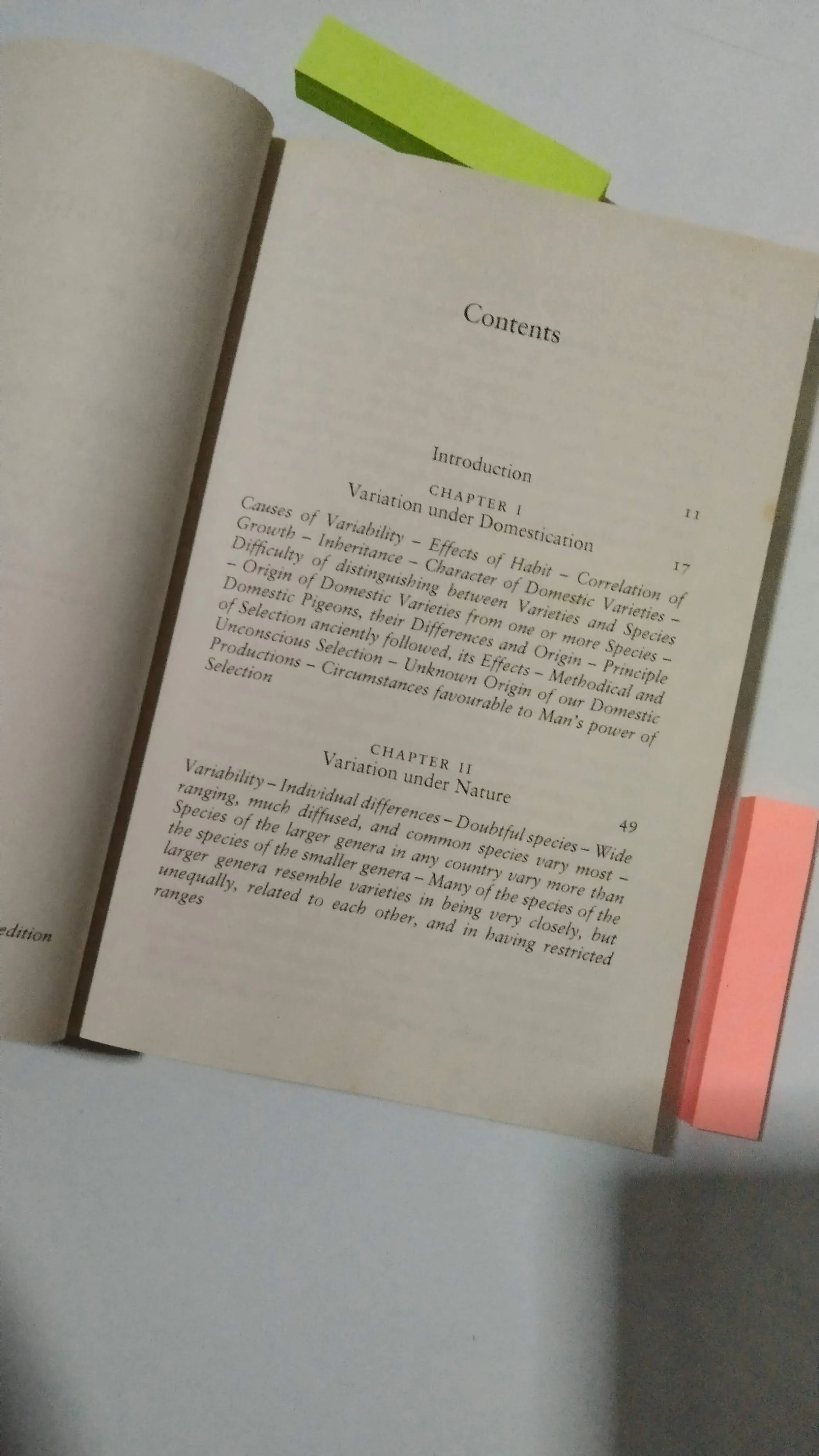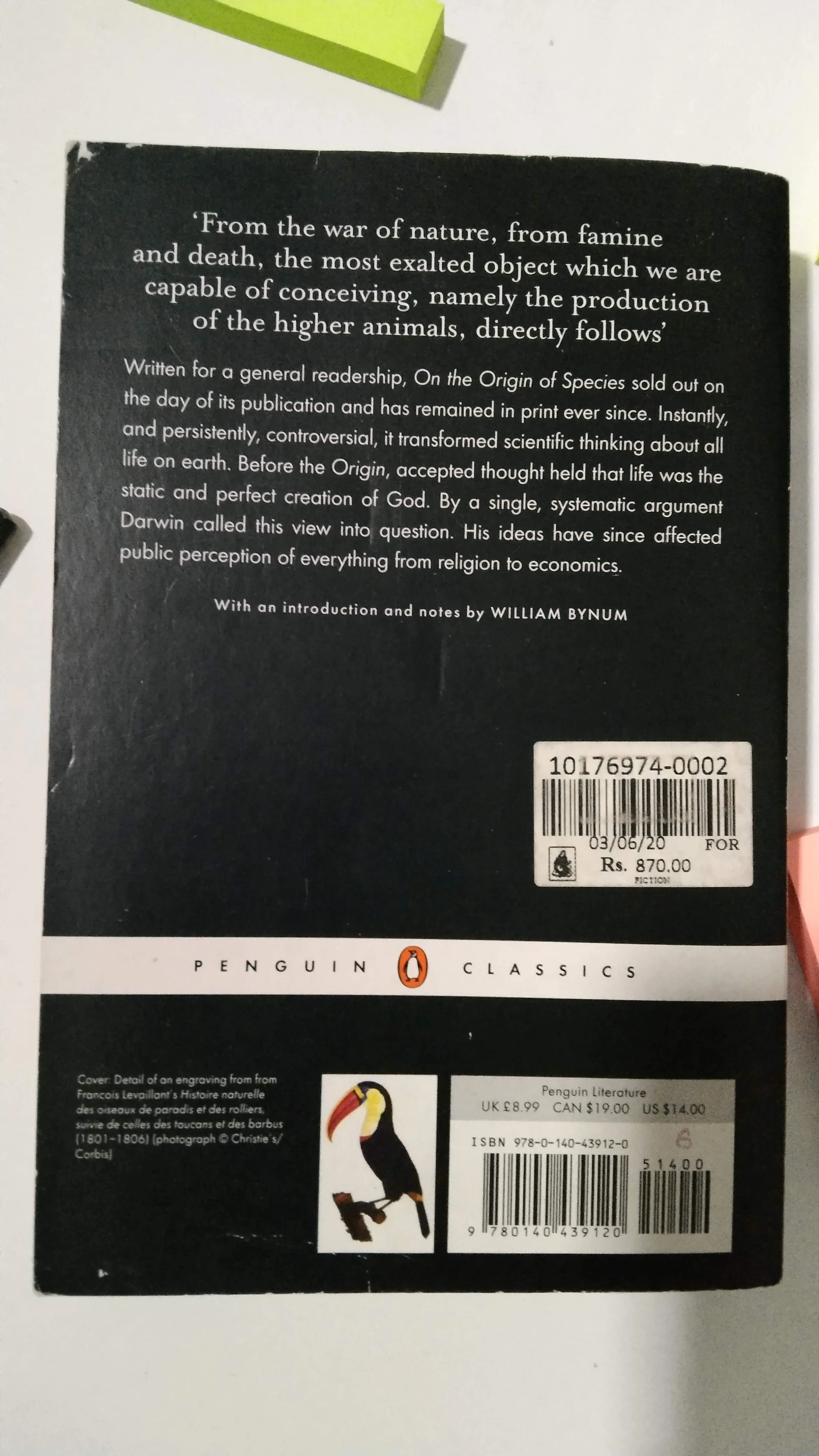On the Origin of Species
by Charles Darwin
Presents evidence for the theory of evolution and natural selection, which explains the diversity of life on Earth and how species change over time through the process of natural selection.



"It is not the strongest of the species that survive, nor the most intelligent, but the one most responsive to change."
- Charles Darwin, On the Origin of Species
My Review:
A classic and groundbreaking work written by Charles Darwin, who is considered one of the most influential scientists in history. The book was first published in 1859 and it is widely considered to be one of the most important books in the history of science. The main idea behind the book is that all living organisms have evolved over time through a process of natural selection.
The book is a thorough and detailed examination of the evidence for evolution, and the arguments that Darwin presents are still considered to be valid and relevant today. Darwin's writing style is clear and concise, making it easy for readers to understand the complex ideas he presents. Throughout the book, Darwin provides numerous examples and illustrations to support his arguments.
One of the key takeaways from the book is that the natural world is constantly changing and that species are not fixed or unchanging. Darwin's theory of natural selection provides a framework for understanding how species change over time, and it is considered to be one of the most important contributions to the field of biology.
Another important lesson from the book is that the idea of survival of the fittest is not just about physical strength, but also about the ability to adapt to changing environments. Darwin's theory of natural selection shows how species that are best suited to their environment are more likely to survive and reproduce, passing on their advantageous traits to future generations.
In summary, 'On the Origin of Species' is a must-read for anyone interested in the origins of life, the history of science, and the impact of scientific ideas on society. The book is a classic that has stood the test of time, and it continues to inspire and influence scientists and researchers around the world.
Some of the lessons I learned from this book are:
- Evolution occurs through a process of natural selection.
- Species are not fixed or unchanging.
- Survival of the fittest is not just about physical strength but also about the ability to adapt.
- Organisms that are best suited to their environment are more likely to survive and reproduce.
- The natural world is constantly changing.
- The theory of natural selection provides a framework for understanding how species change over time.
- Charles Darwin's ideas are still considered valid and relevant today.
- The book is a classic that has stood the test of time.